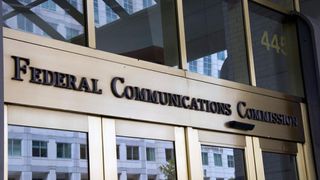FCC Doubles Intergovernmental Advisory Committee

The FCC has voted (4 to 1) to double the membership of its Intergovernmental Advisory Committee, which was established to provide input from state, local county and tribal interests.
The FCC bills the expansion as providing a greater diversity of voices, but FCC Commissioner Mignon Clyburn didn't see it that way, and dissented, and fellow Democratic commissioner Jessica Rosenworcel dissented in part, saying the committee was more about window dressing than addressing the needs of those constituencies.
The item says that the committee has provided ongoing advice on issues including "cable and local franchising, public rights-of-way, facilities siting, universal service, barriers to competitive entry, and public safety communications," but that 15 members has failed to "capture the perspective" of its "regulatory partners" across the country.
The new committee will consist of "30 members, of which at least four shall be elected municipal officials, at least two shall be elected county officials, at least one shall be a local government attorney, at least one shall be an elected state executive, at least three shall be elected state legislators, at least one shall be a public utilities or public service commissioner, and at least three shall be Native American Tribal representatives. "
Chairman Ajit Pai called it a simple step toward a wider range of input. He also suggested he was ready to accept most of the input form commissioner Mignon Clyburn, but that she was unwilling to compromise.
Pai said that since the FCC would need to solicit nominations, which could not happen by January, that IAC meeting would be postponed until the IAC is at its new "full strength."
Clyburn had wanted two consumer advocates on the committee, but that was not part of the "most" the chairman was willing to accept.
Broadcasting & Cable Newsletter
The smarter way to stay on top of broadcasting and cable industry. Sign up below
Clyburn also pointed out that the current IAC chair, Connecticut Gov. Dannel Malloy, had advised that simply doubling the membership without changing the way the committee interacted with the FCC would not boost attendance or interaction.
She also took issue with canceling the meeting. Clyburn suggested that might be retaliation for the IAC chair expressing concerns about expanding the committee.
Rosenworcel voted to expand the committee, but aimed her partial dissent at how the FCC was treating it. She pointed to the committee chair's assertion that members have been "repeatedly discouraged from submitting written comments.”
"I support this expansion in hope that a larger group can have more influence and ability to offer insights to the Commission about the application of its policies to communities nationwide. But I dissent to the extent that the Commission continues to use this Committee as window dressing, setting up meetings but denying the group the ability to have a full say in the work of the agency."
Malloy, a Democrat, is a big critic of FCC chairman Ajit Pai's network neutrality deregulation, calling it anti-consumer and anti-competitive. That reg rollback includes preempting states and localities from trying to restore those regs themselves.
RELATED: Blackburn Introduces Open Internet Preservation Act
Contributing editor John Eggerton has been an editor and/or writer on media regulation, legislation and policy for over four decades, including covering the FCC, FTC, Congress, the major media trade associations, and the federal courts. In addition to Multichannel News and Broadcasting + Cable, his work has appeared in Radio World, TV Technology, TV Fax, This Week in Consumer Electronics, Variety and the Encyclopedia Britannica.

